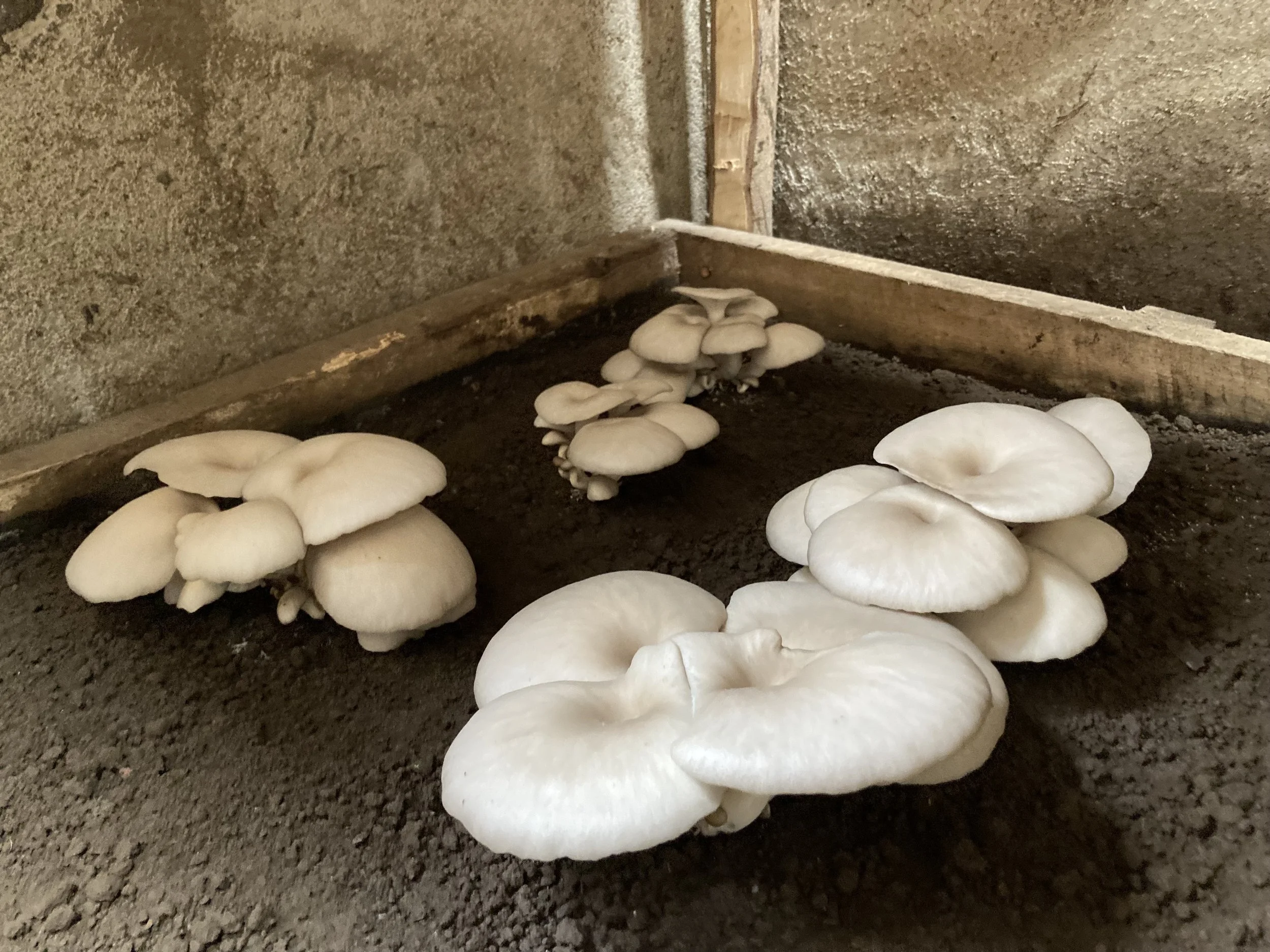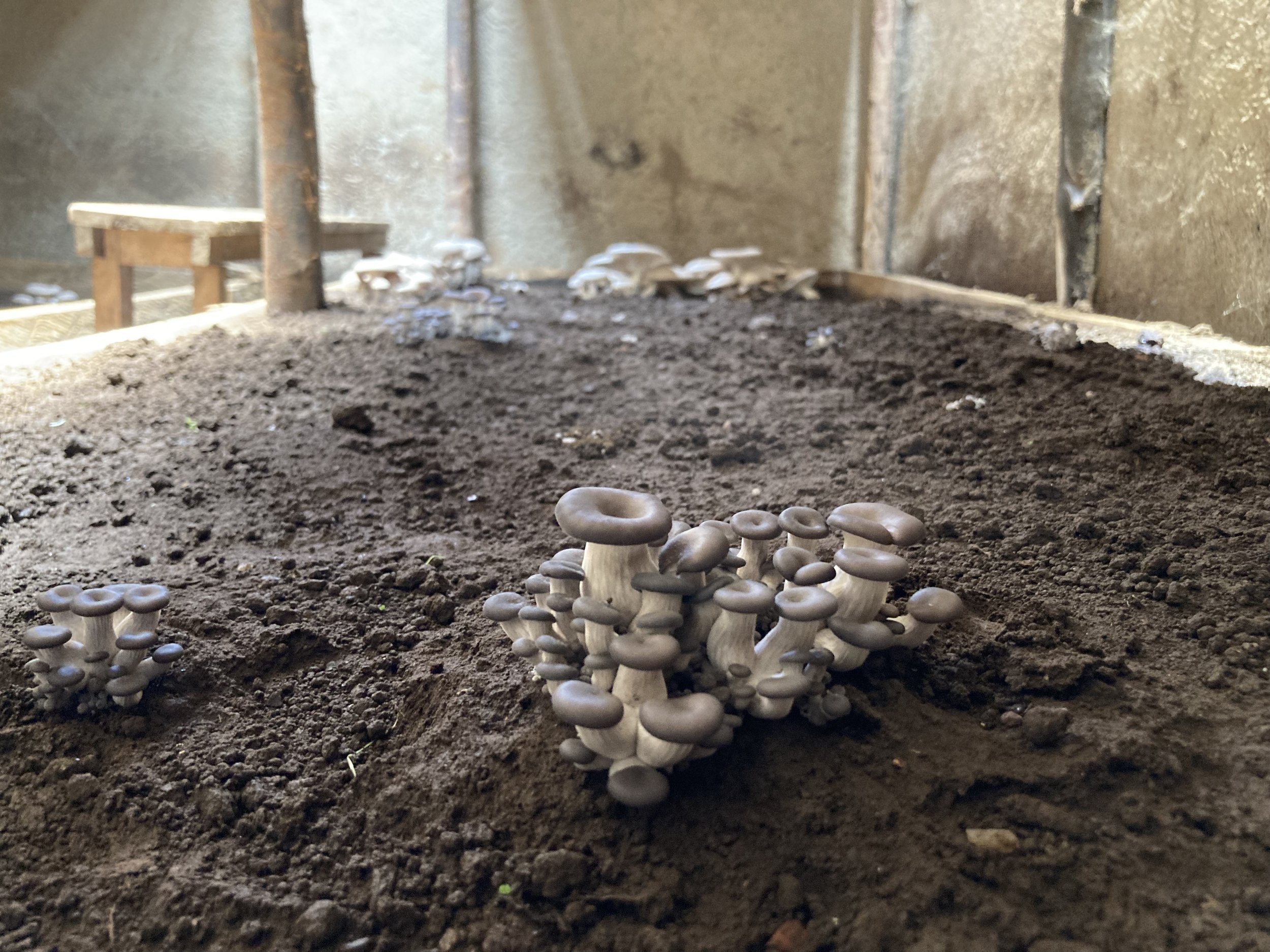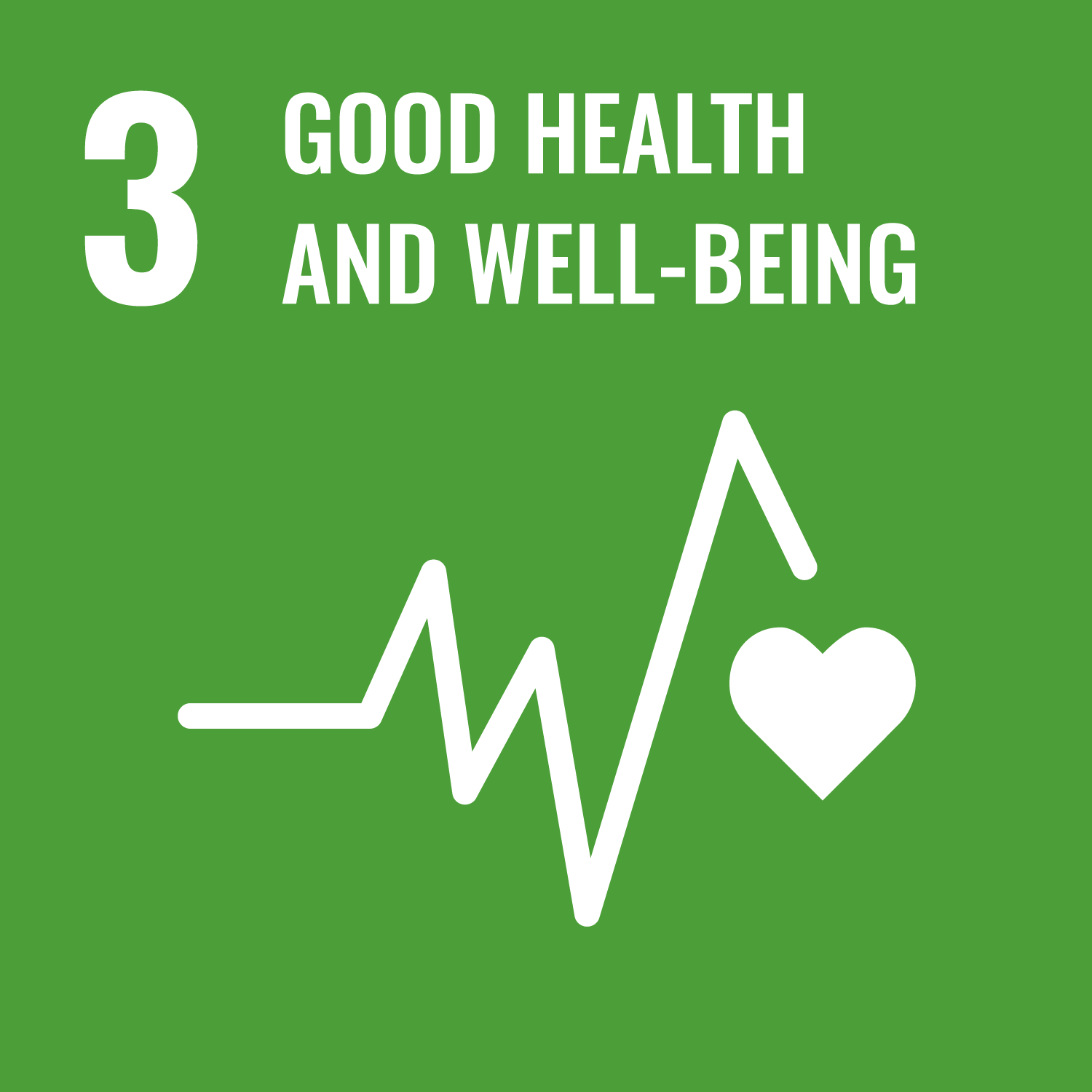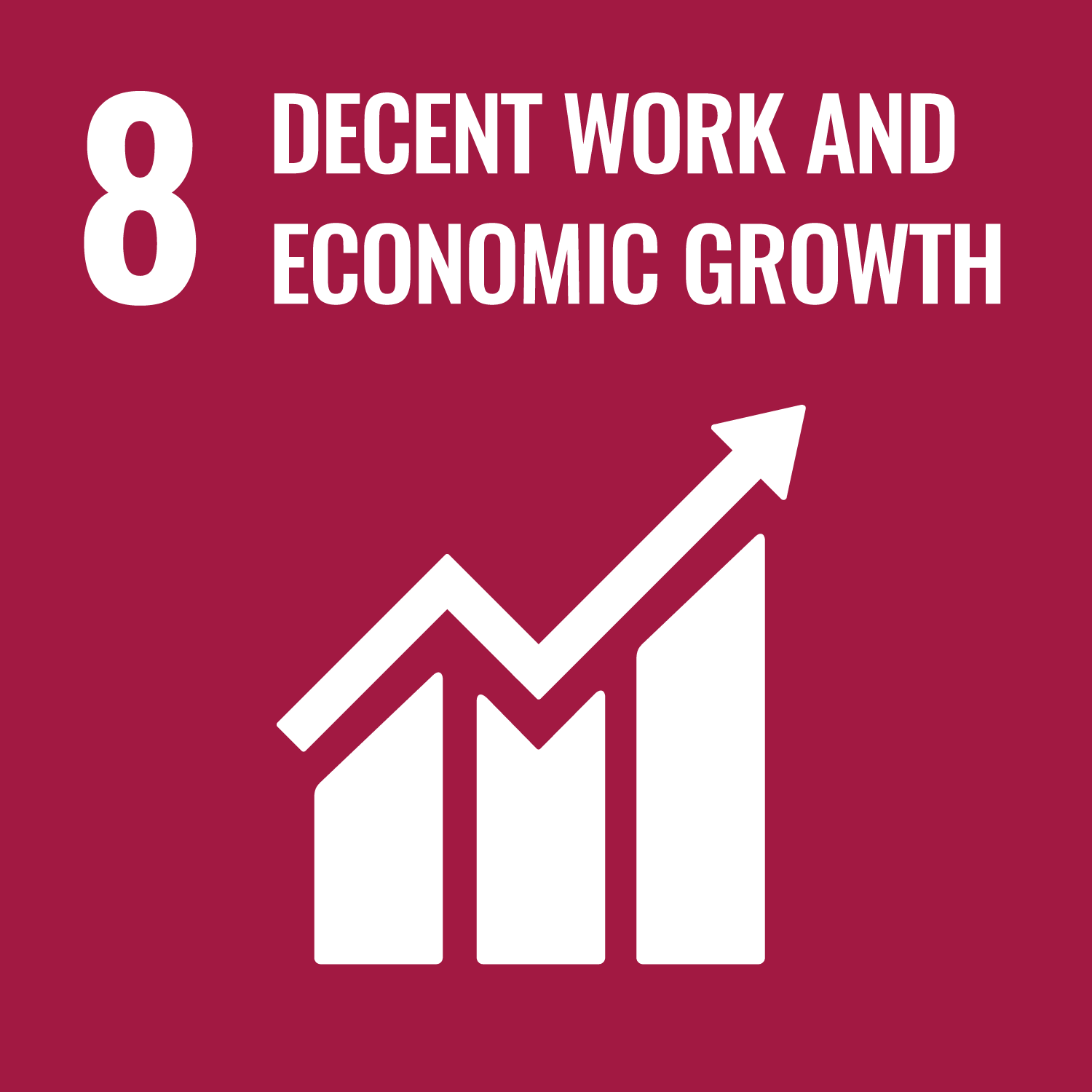Mushroom Farming: a Health Option Appears in Kinigi & Nyange Community
Mushroom intake to tackle malnutrition
In 2005 National Policy, the Rwandan government targeting to eradicate malnutrition, proposed a multi-pronged approach. Mushroom growing business was included. In rural communities, the diversity of food consumption is relatively low. It is rare to see ingredients except for potatoes, carrots, bananas, tomatoes or egg plants (intoryi) on the dining table. Mushroom now plays an important role in tackling malnutrition, which might lead to diet-related non-communicable diseases such as diabetes according to World Health Organisation (WHO). Therefore, the Ministry of Agriculture has proactively promoted commercial mushroom growing as one of the crops in recent years.
Advantage of mushroom growing in Kinigi/Nyange
Biologically, mushrooms involve fungal decay of an organic substrate, usually wood. Kinigi/Nyange is located at the foot of Volcano National Park, with abundant forestry resources, which makes mushroom medium easily found.
Furthermore, the climate in Kinigi/Nyange suits for mushroom growing. The altitude of Kinigi/Nyange is about 2,000 metres, which creates a relatively chill environment with average temperature around 20°C all year around. In addition, Kinigi/Nyange is situated beside multiple high-altitude volcanoes. Orographic precipitation brings greater humidity to this region. The consistent cool and moist climate is suitable for mushroom growing.
Involvement of SACOLA
SACOLA discovers the potential of mushroom growing in Kinigi/Nyange community. The mushroom business creates job opportunities for locals. At present, three mushroom farms have been established by SACOLA and 14 individuals work in these places.
The product simultaneously provides an alternative food option and tackles malnutrition in the local community. Substantial demands and interests have been shown by local markets and hotels. For selling mushrooms of 5,000 Rwf in the market, it is calculated to invest 1,500 Rwf in production, and 600 Rwf contribute to the purchase of mushroom grow bags (Jancao Technology).
The potential of mushroom growing business in Kinigi/Nyange is significant. This project improves local job creation, mitigation of malnutrition, and social well-being.
Fig. 1 Black oyster mushrooms grow on compost in a mushroom cultivated bed.
Fig. 2 A local employee harvests white oyster mushrooms with happiness.
Alignment with UN SDGs
Good health and well-being
This project has an aspect of tackling malnutrition, in order to avoid diet-related non-communicable diseases in the community. It aligns with SDG 3: Good Health and Well-Being which ensure healthy lives and promote well-being for all at all age.
Decent work and economic growth
Mushroom farms in Kinigi community create jobs for locals that increase income-generating employment opportunities. Furthermore, mentioning the climate condition and industrial structure, mushroom farms also generate remunerative employment and productive occupational opportunities compatible with region-specific factor endowments.






